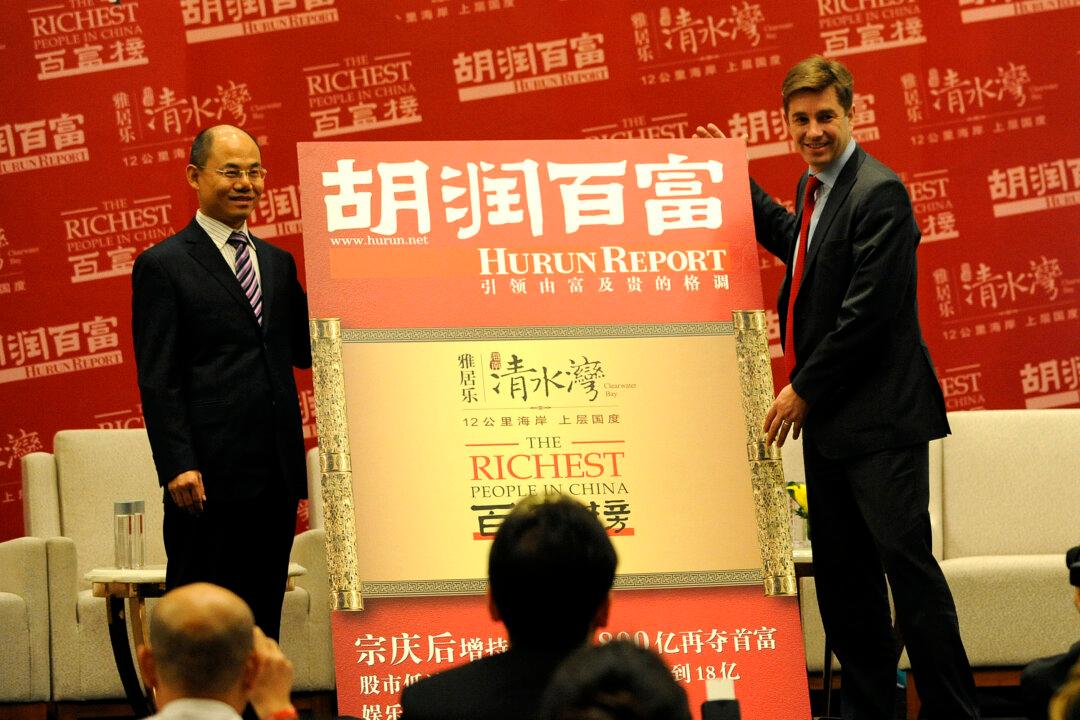Nine of the top ten on an independent list of China’s wealthiest have ties with the Chinese Communist Party, according to a recent report by Chinese state media, further underlining the interwoven nature of business and politics in China.
The state-run Beijing Youth Daily reported on the political participation of the ten richest men in China after the release of the Hurun Report, an annual survey of China’s wealthiest, on Oct. 10.
Despite the slowdown in the economy, China's richest have defied gravity, recording their best year ever, and creating more wealth than any country has ever done before in a year.
, Hurun Report chairman and chief researcher




